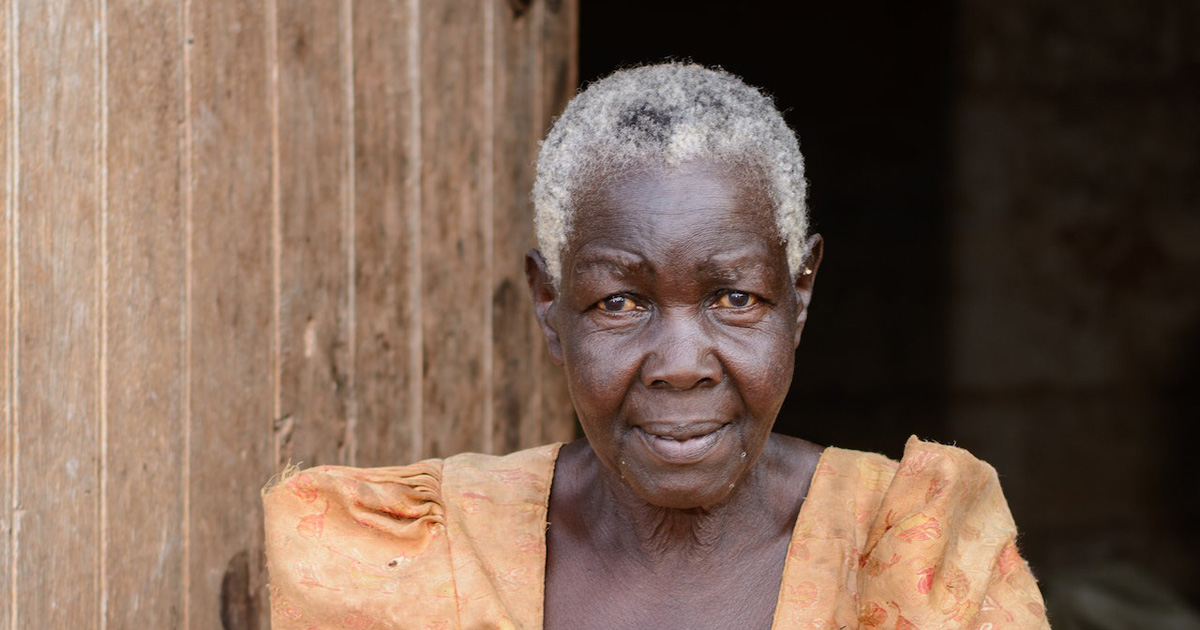On this day, 1st October 2022 which has been set down by the United Nation to commemorate the International Day of Older Persons, the Commission on Human Rights and Administrative Justice joins the International Community to recognize and celebrate the enduring contribution of all older persons in Ghana, Africa and globally.
The United Nations General Assembly on December 14, 1990, designated October 1 as the International Day of Older Persons. Subsequently, the General Assembly adopted the United Nations Principles for Older Persons in 1991 and the Madrid International Plan of Action on Ageing in 2002 to take measures to enable the full and equal participation of older persons, especially older women, in decision-making at all levels, respond to opportunities and challenges of ageing in the 21st century, and to promote the building of a society for all ages.
In 2019, there were 703 million persons aged 65+ in the world and this is projected to exceed 1.5 billion in 2050. Among others, more than proportionate increase in healthy life expectancy in Africa over the other Regions of the world has contributed to growth of the population of older persons.1 The 2021 Population and Housing Census recorded approximately 1.3 million older persons (65+), representing 4.3% of the total population in Ghana. This figure is projected to reach 2.5 million by 2025 and 6.3 million by 2050. The increasing number of older persons is accompanied by many challenges, including health and socio-economic issues affecting the rights and wellbeing of the elderly. Specifically, there are instances where older persons, especially older women are abused, violently assaulted, and tortured to death by family and community members.
The theme for this year’s International Day of Older Persons is “RESILIENCE OF OLDER PERSONS IN A CHANGING WORLD’’. This day reminds us of the significant contributions that older people make in our lives in traversing global challenges and finding solutions with resilience and strength. The day also raises awareness of the importance of leaving no one behind. The voices, perspectives and needs of our elders is critical to creating meaningful policies that advance us towards the achievement of Universal Health Coverage across the African continent. Resilience does not necessarily decline with age. Better health and well‐being are associated with greater resilience and higher levels of social and communal interaction are associated with improved resilience.
The Covid 19 Pandemic made us cautious about older persons in furtherance of their safety. With older people at higher risk for severe illness and death from COVID-19, the pandemic highlighted the urgent need to prioritise the safety of our ageing population who are, especially, vulnerable in times of crisis.
The United Nations Decade of Healthy Ageing (2021–2030), a global collaboration, aligned with the last ten years of the 2030 agenda for sustainable development, is geared towards bringing together governments, civil society, international agencies, professionals, academia, the media, and the private sector to improve the lives of older people and the communities in which they live.
Additionally, Ghana has over the past years put in place some policy interventions. Prominent among these are the National Ageing Policy (NAP), which sought to address several ageing issues, The National Pension Scheme, and the Livelihood Empowerment Against Poverty (LEAP). These have worked to improve the rights and wellbeing of older persons in Ghana.
Notwithstanding the remarkable actions and efforts by the government, there remains a lot to do. For instance, the NAP which was promulgated in 2010 with the aim to achieve the overall social, economic, and cultural re-integration of older persons into mainstream society is yet to be fully implemented. The National Pension Scheme has a limiting scope, as majority of older persons in Ghana who work in the informal sector and are unable to contribute to the scheme are excluded from any pension benefits or any other income support in their old age. Also, the National Ageing Bill, which is to integrate the rights and needs of older persons into national policies is yet to be finalized and passed into law. In addition, Ghana is yet to ratify the Protocol to the African Charter on Human and People’s Rights on the Rights of Older Persons.
It is important for ageing issues to be mainstreamed into national development policies. The active participation of older persons in society and development is based on providing older persons with the opportunity to continue contributing to society. These contributions reach beyond their economic activities and extend into their roles in families and in the community. Participation in social, economic, cultural, sporting, recreational and volunteer activities also contribute to the growth and maintenance of the personal well-being of older persons.
Reference to recommendation 146.103 (Universal Period Review - Ghana, Third Cycle), the Commission calls on the Government of Ghana to reinforce programmes and policies on inclusion, poverty reduction, equality promotion and non-discrimination, with particular attention to the elderly. Also, raise awareness of the importance of improved data collection disaggregated by age, highlight the resilience of older persons in the face of environmental, social, economic, and lifelong inequalities. The Commission further recommends Government to pay attention to, and challenge negative stereotypes and misconceptions about older persons and the aged, pursue age-friendly environments free of physical and social barriers, and enable older persons to realize their potentials, while promoting policy dialogues to enhance the protection of older persons’ human rights, and recognize their contributions to sustainable development.
The 2022 International Day of Older Persons is a call to action and opportunity aimed at embracing the voice of older persons and to display their resilience and contribution in society.
Joseph Whittal
Commissioner
